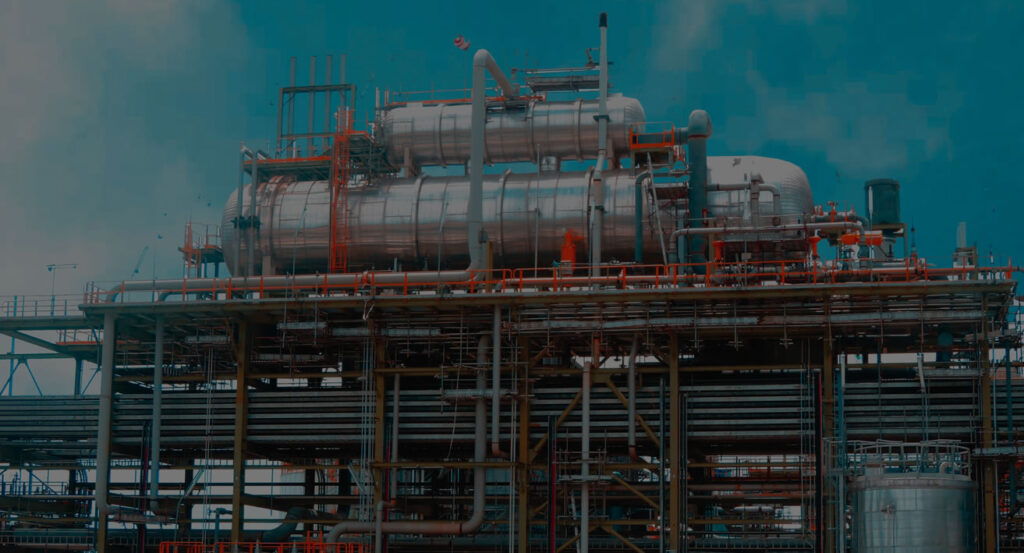The Nigeria Oil and Gas Industry, one of Africa’s largest and most anticipated industrial projects Dangote Refinery, is positioned to transform Nigeria’s energy landscape and boost its economy. With a massive capacity to refine 650,000 barrels of crude oil per day, the refinery is not only significant for Nigeria but also for the broader global energy market. Located in the Lekki Free Trade Zone in Lagos, the refinery is poised to be a critical player in reducing Nigeria’s dependence on imported refined petroleum products, stimulating local production, and enhancing the country’s economic stability.
Background and Construction
The Dangote Refinery is a $19 billion project spearheaded by Nigerian billionaire Aliko Dangote, the chairman of the Dangote Group. Construction began in 2016, and the refinery was commissioned in May 2023, although it did not commence full operations until January 2024. With the goal of addressing Nigeria’s fuel import challenges, this refinery is designed to process both Nigerian crude oil and imported varieties, giving it a unique advantage in the global oil trade.
The facility includes a petrochemical complex that will produce a range of refined products, including gasoline, diesel, aviation fuel, and polypropylene. The project also integrates a fertilizer plant, adding another layer of strategic importance, given Nigeria’s agricultural growth ambitions.
Objectives and Strategic Importance
1. Fuel Self-Sufficiency: Historically, Nigeria has faced significant challenges in meeting its fuel demands despite being one of the world’s top crude oil producers. This paradox is rooted in the country’s inability to refine enough oil domestically, forcing it to rely heavily on fuel imports. The Dangote Refinery aims to reverse this trend by producing enough gasoline and diesel to meet both local and regional demand.
2. Economic Impact: Once fully operational, the refinery is expected to save Nigeria billions of dollars in fuel imports. Additionally, it will generate thousands of direct and indirect jobs, significantly boosting employment. In the long term, the refinery will also contribute to stabilizing the naira by reducing the country’s dependency on foreign exchange for fuel imports.
3. Global Export Market: Besides meeting domestic needs, the Dangote Refinery has its eyes on the export market. In June 2024, it began exporting Euro V diesel to European markets. The export of refined products is expected to improve Nigeria’s balance of trade and provide much-needed foreign exchange inflows.
Operations and Production Capacity
The refinery’s capacity to process 650,000 barrels of crude oil per day makes it the largest single-train refinery in the world. A single-train refinery refers to a facility where crude oil is processed through a single integrated production line, which allows for greater efficiency and lower production costs.
The refinery also includes a petrochemical unit, which will produce about 1 million metric tonnes of polypropylene per year, a critical component in various industries, including packaging, textiles, and automotive parts. Additionally, the plant’s capacity allows it to produce about 10.4 million tonnes of gasoline, 4.6 million tonnes of diesel, and 4 million tonnes of jet fuel annually.
Challenges and Pricing
Despite its potential, the refinery has encountered challenges, particularly in the pricing of its products. In September 2024, the Nigerian National Petroleum Corporation Limited (NNPCL) began purchasing petrol from the Dangote Refinery at a cost of over ₦898 per liter. This development surprised many Nigerians, who had hoped that local refining would bring down fuel prices. However, market dynamics, including the cost of crude oil and Nigeria’s high exchange rates, continue to drive fuel costs upward. As a result, petrol prices in some parts of Nigeria have reached ₦1,019 per liter.
Aliko Dangote clarified that the refinery cannot promise lower fuel prices, explaining that the facility is not receiving government subsidies, and the cost of importing crude oil in foreign currency remains a significant factor. Instead, the refinery guarantees a stable fuel supply, which is crucial in addressing Nigeria’s frequent fuel shortages.
Domestic Sales and International Exports
The refinery has prioritized selling Premium Motor Spirit (PMS) to the NNPCL, which, in turn, distributes the product across Nigeria. In the coming months, the refinery also plans to ramp up its production of diesel and jet fuel for both domestic consumption and international markets.
In addition to petrol, the refinery is now exporting diesel that meets European specifications, with low sulfur content below 10 parts per million (ppm). This Euro V diesel is particularly attractive in Europe, where stringent environmental regulations favor cleaner fuels. Exporting to the European market is expected to significantly increase the refinery’s revenue and contribute positively to Nigeria’s foreign exchange earnings.
Future Prospects: Expansion and Stock Exchange Listing
Looking ahead, the Dangote Group has expressed plans to list the refinery on the Nigerian Exchange Group (NGX) by December 2024. This move is expected to open up investment opportunities for Nigerians and foreign investors alike, further increasing the refinery’s capital base and cementing its role as a key player in Nigeria’s oil and gas industry.
In terms of production capacity, the refinery is targeting 500,000 barrels per day by the end of 2024 and plans to reach its full capacity of 650,000 barrels per day shortly thereafter. This massive output will not only meet Nigeria’s domestic needs but will also position the refinery as a major exporter of refined products in the region.
The Dangote Refinery represents a monumental shift in Nigeria’s oil and gas sector, with the potential to significantly reduce the country’s dependency on imported fuel, stabilize its economy, and position it as a major player in the global energy market. While challenges such as high fuel prices remain, the long-term benefits, including job creation, increased foreign exchange earnings, and improved energy security, make the refinery a critical project for Nigeria’s future. The refinery’s impact will be felt not only in Nigeria but across Africa and the global oil markets, as it strives to become a leading hub for refined petroleum products.


